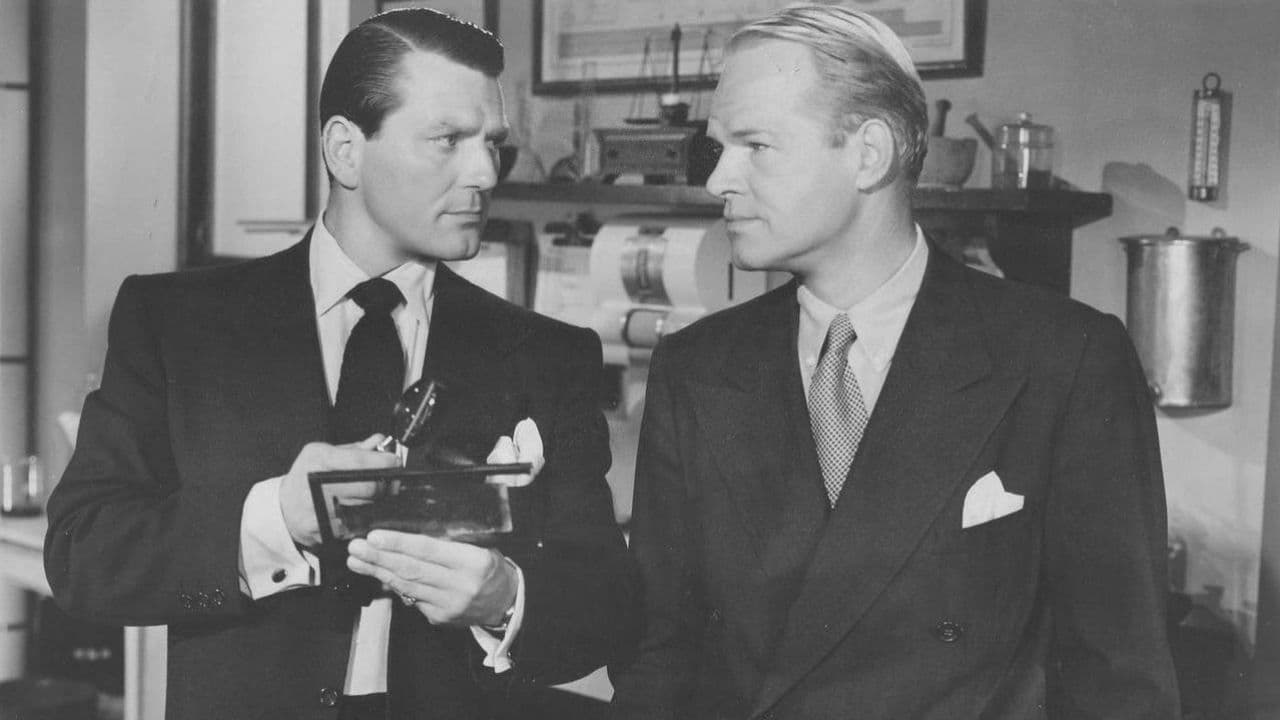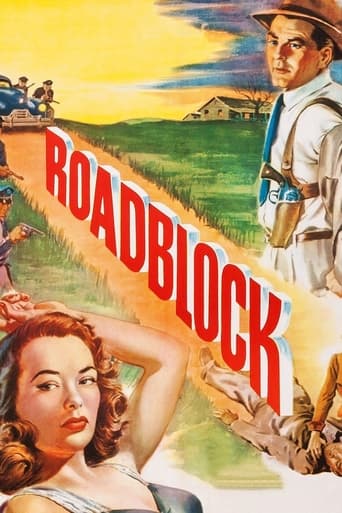Kattiera Nana
I think this is a new genre that they're all sort of working their way through it and haven't got all the kinks worked out yet but it's a genre that works for me.
Evengyny
Thanks for the memories!
Taraparain
Tells a fascinating and unsettling true story, and does so well, without pretending to have all the answers.
StyleSk8r
At first rather annoying in its heavy emphasis on reenactments, this movie ultimately proves fascinating, simply because the complicated, highly dramatic tale it tells still almost defies belief.
Tad Pole
. . . mercenary hard-boiled killer "Diane" explains to her law enforcement simpleton patsy "fall guy" (aka, "Joe"). ROADBLOCK provides just enough "back story" about Diane's devious detours for viewers to conclude that her reason-to-be is the Corruption of Innocence while prodding men to kill each other. This distaff version of OTHELLO's nemesis, Iago, weaves around America, wantonly wielding her wiles against such "soft targets" as detectives, private eyes, and special agents. During ROADBLOCK's main story line, demonic Diane drags Joe down the Road to Perdition (i.e., the dry concrete of the Los Angeles Riverbed). Not satisfied until she feels Joe's final heartbeat sputtering out within her stranglehold, Diane is then pictured strutting down the vast vacuous void (which symbolizes her empty soul), in search of fresh meat. Diane leaves only a trio of dead men in her wake at the close of her ROADBLOCK rampage, so it's highly likely that she's now "loaded for bear," and gunning for many more victims during her next go-round.
LeonLouisRicci
A Film-Noir That Seems at Times Constructed with a Bit of an Awkward Composite. Charles McGraw is Cast Against Type as a Romantic and Joan Dixon's Femme Fatale is Written with an Abrupt Change of Character.Nicholas Muscara is Behind the Camera but it's Not His A-Game. However, Despite the Film's Inconsistent Flavor it Manages to be a Very Watchable Example, if Not a Pristine Example of the Genre.The Theme is Noir For Sure. A Downward Spiral of a Good Man Gone Bad by an Infatuation with a Glamorous Girl's Temptive Allure. By the Time She has a Change of Heart, the Damage is Done and there is No Turning Back. That Aids the Cautionary Tale of Life's Many Roads to Take and Be Careful of the Detours.Overall, a Good Example of the Genre but Perhaps Not the Best. McGraw and Dixon are Fine and the Story is Typical, but the Movie Lacks Style and is Pedestrian in the Way it is Cobbled Together. It Seems Inattentive at Times with a Distinct Aloff Concern for the Weight of the Material.Still, it has Enough Going for it to Recommend and is Not Fully a Disappointment, Just Given a Little More Concern for the Film as a Whole it Remains Competent and a Contender, but Not that of a Champion.
ackstasis
'Roadblock (1951)' has plenty of the classic noir ingredients, but it also recalls all those films from which it borrowed them. An honest insurance detective is corrupted into defrauding his own employer – that's straight from 'Double Indemnity (1944).' A swift city-wide dragnet embraces the fleeing anti-hero, stifling his final chance of escape – that's 'High Sierra (1941).' Even leading man Charles McGraw, typically confined to supporting roles, might credibly be described as a "poor man's Kirk Douglas." With his chiselled features and a gravelly voice, I occasionally found myself picturing Douglas in the role (I also saw Gene Tierney in Joan Dixon's place, but that's just me and my wishful imagination). All things considered, the two main performers do quite well in a B-movie that offers few surprises. Content to follow the already-established film noir mould – to drive the riverbed without breaching its banks, so to speak – director Harold Daniels has produced an entertaining, workman-like thriller. But why rewatch it, especially when you can instead enjoy its superior predecessors?The film, intended as the lower half of a double-bill, jumps straight into action. A fugitive bank robber (Peter Brocco) becomes witness to a homicide, the killer taking him hostage and threatening to dispose of him. After offering his stolen loot in exchange for his life, the film pulls its first – and probably only – unexpected twist. The "killer" is, in fact, L.A. insurance detective Joe Peters (Charles McGraw), who engineered the mock murder of his partner (Louis Jean Heydt) to discover the whereabouts of the missing bank money. Peters is fiercely honest, having resigned himself to an unglamorous life on a modest detective's income, but this episode foreshadows his character's transformation into a liar, murderer and fugitive. Why do good men turn bad? In 'Roadblock' – as in all noir – the blame is irrevocably placed on a woman. Unashamed gold-digger Diane (Joan Dixon) taunts Peters with her icy beauty, disdainfully implying that he could never afford somebody like her on such a meagre salary. If you're going to turn to crime, I guess sex is as good a reason as any.'Roadblock' was directed by Harold Daniels, who doesn't appear to have much else of credit to his name, but the cinematography was by Nicholas Musuraca, whose exquisite noirish work is also on display in 'Stranger on the Third Floor (1940),' 'Cat People (1942)' and 'Out of the Past (1947).' What I love most about film noir is how the photography so often suggests more than would otherwise be understood. For example, despite beginning the film as a questionable, if seductive, chiseller, Joan Dixon's character later takes a turn towards the uninteresting, rejecting her former prestigious life-style in favour of love and marriage (making Peters' fatal transformation ironically unnecessary). Having now settled into her new role as a slighted romantic lover, and apparently deserving of our sympathy, Diane witnesses her husband gunned down by police, and resignedly departs the scene. It's not spoken, but Musuraca's camera doesn't forget who's to blame for this tragedy: he frames her strutting purposely - almost dismissively - away from the devastation her hand has caused, like a gunman turning his back on a massacre.
Ray Faiola
This picture shows just how GOOD an actor Charles McGraw was. The fact that he could get away with some of George Bricker's classic clinkers is testament to his low key but earnest energy. Bricker has stunk up more scripts (SH! THE OCTOPUS, HOUSE OF HORRORS are two of his most notorious) and he doesn't disappoint with ROADBLOCK. Couple Bricker's dialogue with the clumsy direction of Harold Daniels and you have a bunch of actors who are mostly off their game (especially struggling Joan Dixon). The scenario is outstanding and could have been developed into a genuine classic noir. But it turns out pretty routine, even turning the unique idea of a chase in the LA river bed into a pretty tame action sequence. Paul Sawell revives some of his DICK TRACY music for Square Jaw McGraw. Louis Jean Heydt has a larger role than usual and he's quite good, as is Milburn Stone as a Federal Man. Lowell Gilmore is strictly third-rate George Macready. It's a woulda-coulda-shoulda but still a painless way to kill 70 minutes.

